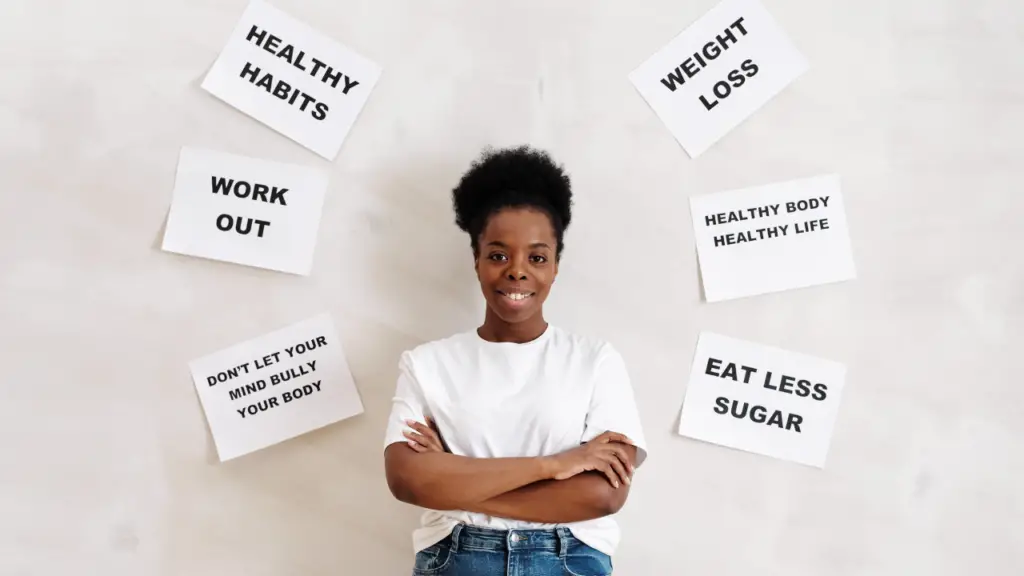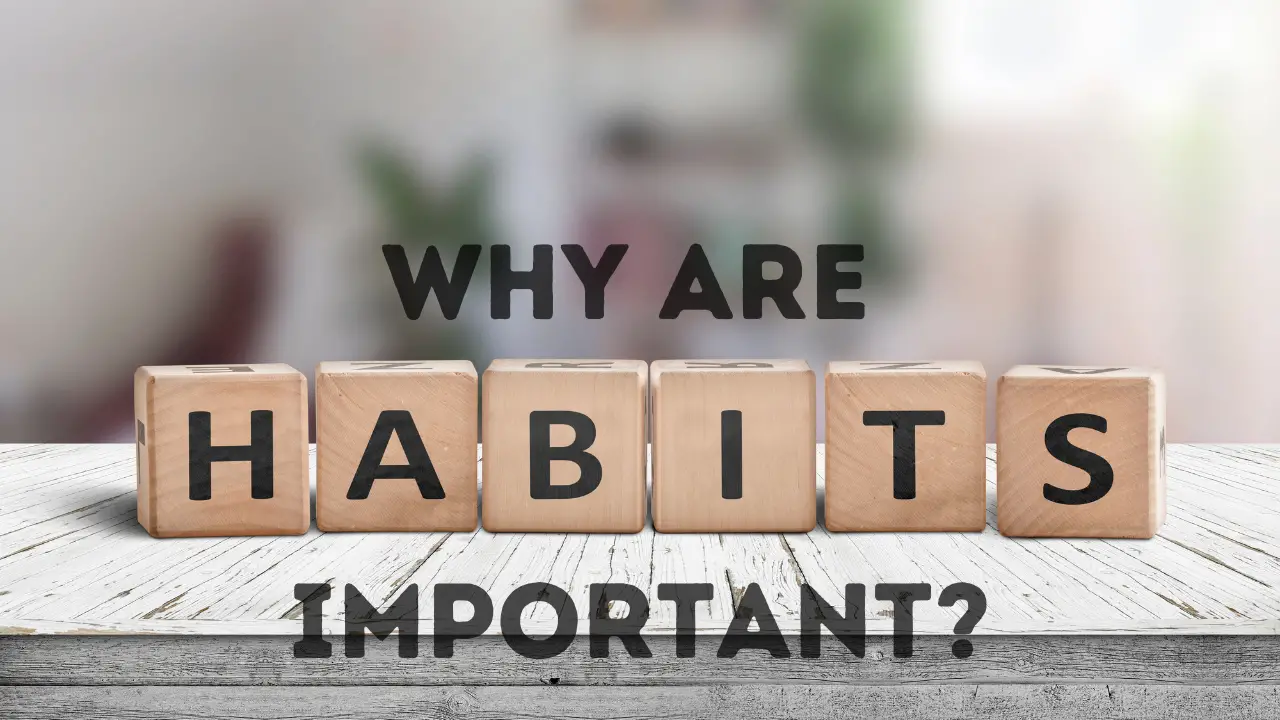Habits might seem like a word you hear about every once in a while. Dwell on the complexity of the nature behind habits, and there are tons of dimensions humans are only beginning to understand.
Did your parents force you to sleep on time and make a habit out of it in your childhood? It had its reasons and good ones. Habits play a crucial role in more ways than we can count.
These automated activities structure our lives and determine many factors, including health, productivity, and lifestyle. Here is your essential guide to the importance of habits and the ones you should start incorporating into your routine:
What are Habits?
You'd be aware of the common terminology of the word ‘habit.' But let's dive into what it means from a scientific perspective.
When you make a specific activity a part of your daily routine, it becomes a habit. This phenomenon is due to the superpowers of your brain, or more specifically, the basal ganglia. The ganglia can identify it as a routine if you perform an activity daily.

Once you do a workout every day for a prolonged period, you'll start doing it automatically. So, your brain will no longer have to exert a mental workload on making that action happen.
The usual cycle of an action becoming a habit is trigger-behavior-reward. The first part is when your brain recognizes an internal or external element that becomes a signal for action. Once the trigger is identified, the brain signals a reaction in response to it. This step in the cycle is called behavior.
Lastly, the reward is the positive outcome of that behavior and acts as a reinforcer to connect trigger and behavior. As a result, if the reward is satisfactory, you will likely perform that action to the identified trigger.
Moving on to day-to-day scenarios, let's consider a situation. When you see fire (trigger), your brain automatically sees it as a trigger to get away from it (behavior). This specific behavior saves you from injuries (reward), which is why your brain will generate the same response again.
Why Should you Maintain Habits?
Maintaining healthy habits is essential for your health in several ways, some of which are:
Enhanced Concentration:
Every activity you perform creates a neural pathway in your nervous system. Making that action a habit makes the neural path more efficient and effective. Think of it like a river that flows down a mountainous slope.
The water current deepens the channel with time and makes it more comprehensive. Similarly, the neural pathway of a particular habit solidifies, making it easier to follow that habit.

Moreover, the subconscious region of the brain controls such habits. Consequently, this daily decreases the load on the brain areas with conscious activity. Hence, incorporating habits allows you to concentrate on other stuff more efficiently and longer.
Decreased Flexibility in Older Age:
Remember the neural tracts formed by a habit? Around 30, the same neural pathways start to solidify and crystallize. After this process begins, it becomes increasingly difficult to adopt new practices and make any behavioral changes.
For this reason, older adults find it challenging to learn new languages or master a musical instrument. It is always a great time to make changes after the New Year, as the motivation to do so is at its peak. Hence, if you haven't started incorporating habits into your life, make it a part of your New Year's resolutions.
Punctuality:
If anything, habits bring punctuality and timeliness to an individual's life. People who follow a particular set of healthy habits live an organized and systematic life. If you have a habit of reaching the office on time, you won't fear salary deduction.

Or, if you're a student, you won't have to worry about wrong impressions for reaching the lecture late. Moreover, such people show their strong character, an excellent source of admiration and respect.
On the other hand, people who don't follow a habitual routine often live a chaotic life. Sometimes, things may become so disorganized that their only hope is that it will become better the next day.
Increased Efficacy:
To understand this point, let's consider an example. Many people start going to the gym as part of their New Year's resolution. But after a month or two, they lose the motivation to continue and end up quitting.
Similarly, many people forcefully start early morning jogging, only to ditch it after some time. The turnout for not turning any of these into a lifelong habit is that neither had a long-term positive impact.
To understand this better, social and psychological experts experimented. One group performed a task regularly for 20 minutes, and the other group performed the same job for 70 minutes but irregularly. They found that the first group performed their task more effectively. Hence, habits have a significant impact on increasing efficiency.
Self-Fulfillment:
Whenever you perform a task, you boost self-confidence that you've successfully done that task. And when your whole day is planned according to your habits, you consecutively complete most of the intended objectives. The result is, you experience a sense of contentment and gratification that is impossible to get otherwise.

Many experts suggest making your bed first thing in the morning your habit if you have a pending challenging task. It's because the self-fulfillment that comes with making the bed helps you achieve the task successfully.
Which Habits Should You Maintain?
With New Year upon us, everyone has made their New Year resolutions. These resolutions have a significant connection to your previous habits. Based on our last discussion, we must develop healthy habits.
For instance, a person who habitually smokes excessively will be more inclined to drop cigarettes than someone who smokes less. Or, people who live a sedentary lifestyle will want to incorporate physical activities into their daily routine. Here are some habits that everyone should adopt any time of the year:
Start Eating Healthy
If you're not following a healthy, nutritious diet routine already, this is the time to start one. Eating a balanced diet fulfills your required daily intake of all the necessary biochemicals.
Your body needs proteins to form hair, nails, and muscles. At the same time, carbs are a crucial energy source for most body functions. Similarly, fats aid the body in temperature regulation and act as an energy reservoir whenever there's a carbohydrate shortage. Making it a habit to follow a balanced diet ensures you don't suffer from deficiency diseases.

Moreover, every individual may have different dietary requirements. If you're a celiac patient, you need to stay as far from gluten and contaminated products as possible.
Similarly, a diabetic patient is supposed to eat a low-glucose diet. A fatty diet puts extra strain on the heart of patients with cardiovascular diseases. Hence, the best solution is to ask a dietitian to devise a proper, balanced diet that suits your needs and preferences.
Start Any Physical Exercise
There is no doubt that movement is medicine. Numerous health benefits come with starting any physical activity and making it a habit.
Early morning jogging not only lets you enjoy the beauty of nature but also helps in weight management. Continuously doing moderate exercise for half an hour a day reduces the risk of metabolic syndrome and cardiovascular issues.

Research suggests that exercise also delays the onset of diabetes and helps in controlling your blood sugar levels. Moreover, exercise strengthens the bones and increases muscle mass, creating a good physique.
Another benefit of making exercise a habit is increased pain tolerance, endurance, and resistance. Moreover, regularly performing physical activities reduces the risk of all-cause mortalities by 33% and ultimately increases your average life expectancy.
To make this habit stick, you can start with any exercise that interests you and begin at a slow pace. Once it has become a fundamental part of your routine, you may increase the intensity.
Early to Bed and Early to Rise
As kids, we all wanted to grow up to have the liberty to stay up late at night. Yes, finally getting to do that is fantastic, but do you know what's even better? Going to sleep and waking up at a reasonable time lets you have an adequate amount of sleep.

After a good night's sleep, wake up early in the morning, feeling fresh throughout the day. Making this a habit has numerous advantages that significantly impact your physical and mental health. Getting enough sleep helps maintain weight, enhances your mental concentration, and reduces the risk of several chronic diseases.
If you're sleep-deprived throughout the weekdays and sleeping in every weekend, that's even worse. If you sleep late and, to compensate for it, wake up late as well, you enter a “social jetlag.”
Therefore, try to get enough sleep by going to bed, waking up early, and making it a habit. Having a bedtime routine that includes your sleep time benefits your well-being.
Stay Hydrated:
Another important habit is to stay hydrated.
Medical experts believe that drinking adequate water can work wonders for your health. Water is an exceptional temperature regulator. For this purpose, water plays a pivotal role in maintaining the body temperature within an optimum range. Being a natural lubricant, abundant drinking water regularly also lubricates your joints.

In addition, even mild dehydration can have a crucial impact on brain function and worsen mood. Some studies suggest that fluid loss, especially after exercise, can cause headaches. On the contrary, being a regular water drinker improves brain function and memory and enhances mood.
Other benefits of incorporating water drinking into your everyday life are preventing infections, treating constipation, and keeping organs functional. Staying hydrated and making it a habit is essential.
Ways to help you form habits:
If you are looking for a good read about building habits, you may want to read, “High Performance Habits: How Extraordinary People Become That Way.”
Or use a journal such as, “The Morning Sidekick Journal – Habit Tracker Journal. A Guided Journal for Morning Routines.”
Final Words
From work-life balance to a healthy diet, everything depends on setting your lifestyle and making the best of it.
Now that you know the vast impact habits bring to your life, it's time to work on them.
If you haven't been able to add good habits yet, start incorporating them today!

The owner of this website, HealthYeahLife.com is a participant in the Amazon Services LLC Associates Program, an affiliate advertising program designed to provide a means for sites to earn advertising fees by advertising and linking HealthYeahLife.com Review to Amazon properties including, but not limited to, amazon.com.





